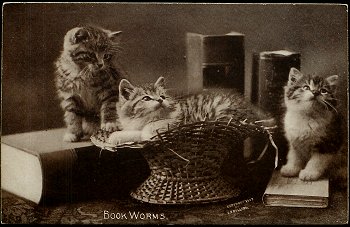 Anonymous books are always a puzzle- why did the author choose not to reveal his name? What is the story behind it? Often there is an interesting tale to tell, and that is the case with a little 19th century book titled "Handbook of Young Artists and Amateurs in Oil Painting...by an American Artist", published in New York in 1845.
Anonymous books are always a puzzle- why did the author choose not to reveal his name? What is the story behind it? Often there is an interesting tale to tell, and that is the case with a little 19th century book titled "Handbook of Young Artists and Amateurs in Oil Painting...by an American Artist", published in New York in 1845.The author was a man named Laughton Osborn [1809-1878], who was an amateur painter and professional (though usually anonymous) author, whose work is now largely forgotten. He is seen most vividly today through the eyes of Edgar Alan Poe, who knew him as an entertaining, sometimes virulent author, and a poetic contributor to several of Poe's magazines.
Poe included a vivid sketch of Osborn in his 1850 essay "The Literati", where he related that he had read and been amused by several of Osborn's anonymous literary works, the most notable of which had been "The Confessions of a Poet, by Himself". "Confessions" had been widely criticized by literary critics as obscene.
"It is not precisely the work to place in the hands of a lady," Poe admits, while judging it "quite remarkable For artistic unity and perfection [with] sentiments audacious and suggestive at least, if not at all times tenable."
Violent criticism of the "Confessions" from one New York newspaper editor brought forth a stinging satirical rebuke from Osborn titled "The Vision of Rubeta, an Epic of the Island of Manhattan". This satire, Poe notes-
"was not only bitter but personal in the last degree. It was, moreover, very censurably indecent - filthy is, perhaps, the more appropriate word".
Still, Poe declares, it was the best satire written to the time in America, which was, he admits, not saying all that much, as it was also just about the only satire written up to that time in America. Osborn had once complained in a private letter to Poe that he had absolutely no friends, and Poe muses that he was-
"undoubtedly one of "Nature's own noblemen, full of generosity, courage, honor - chivalrous in every respect, but, unhappily, carrying his ideas of chivalry, or rather of independence, to the point of Quixotism, if not of absolute insanity," and that Osborn had "few equals at downright invective."
Odd then, that he had no friends...
America's own foul-mouthed Quixote was also a playwright, specializing in pseudo-historical tragedies and comedies, and an amateur painter, from which hobby came his interest in the French works he translated to produce this "Handbook of Young Artists". In this book Osborn discusses materials and implements, coloring, finishing, the technique of painting drapery, painting landscapes, and finally varnishing, cleaning, repairing and lining. The book is a source of much useful information on 19th century techniques and materials, and is also of interest as an example of an influential 19th century American art manual. It was re-issued a number of times in the 1850s and 60s.
Poe summed up Osborn as-
"a poet, painter and musician (who has) absolutely succeeded as each. His scholarship is extensive. In the French and Italian languages, he is [quite] at home, and in everything he is thorough and accurate."
Osborn's "Treatise on Oil Painting," Poe concludes, was "highly spoken of by those well qualified to judge."
Well, it would have been, wouldn't it? Who would have wanted to cross pens, or paintbrushes, with Laughton Osborn?
We have a copy of this book for sale here.

No comments:
Post a Comment